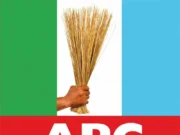The Federal Government has committed to covering the revenue shortfall caused by the difference between cost-reflective tariffs and the actual tariffs paid by customers of the Kano Electricity Distribution Company (KEDCO).
This development was detailed in a September 2024 Supplementary Order issued by the Nigerian Electricity Regulatory Commission (NERC) as part of the Multi-Year Tariff Order (MYTO) framework for KEDCO, made public on Thursday.
 Advertorial
Advertorial
The supplementary order, which took effect from September 1, 2024, addresses financial challenges brought about by factors like inflation and exchange rate fluctuations.
According to the document, “The Federal Government’s policy on subsidy and electricity tariffs provides for a phased transition to cost-reflective tariffs for end-users, with protective measures for the less privileged consumers.”
“As part of this, the government has pledged to fund the revenue gap arising from the difference between the approved cost-reflective tariffs and the actual tariffs paid during this transition period.”
 Advertorial
Advertorial
NERC’s review of key economic indicators, including the exchange rate of the naira to the US dollar and domestic inflation rates, led to a revision of KEDCO’s revenue projections and tariffs for the remainder of 2024.
Specifically, a Naira-to-dollar exchange rate of N1,601.50/US$1 was adopted for the September to December 2024 period, alongside a Nigerian inflation rate of 33.40% for July 2024.
The Federal Government’s intervention will help KEDCO meet its financial obligations despite these cost increases.

NERC further clarified that “Government intervention from budgetary appropriations and other funding sources for tariff shortfalls will be applied by NBET (Nigerian Bulk Electricity Trading Plc) to ensure 100% payment of market invoices issued by generation companies (GenCos).”
The order also outlined KEDCO’s service commitments, requiring the company to adhere to the Service-Based Tariff framework and deliver a minimum number of hours of electricity supply to consumers in different tariff bands.
 Advertorial
Advertorial
In addition, KEDCO is required to invest in upgrading its infrastructure, including securing a minimum of 27MW of embedded generation capacity in 2024, with at least 50% of this capacity sourced from renewable energy.
The government’s financial support aims to stabilize the electricity market and protect consumers from the immediate impact of cost-reflective tariffs.
This assistance will enable KEDCO to continue delivering services while meeting its market obligations.
NERC concluded the order by pledging to closely monitor KEDCO’s compliance with its service delivery commitments.

“The commission will continue to use technology to directly monitor the hours of electricity supply from KEDCO’s Band A feeders through its head-end system for near real-time oversight,” NERC stated.
















